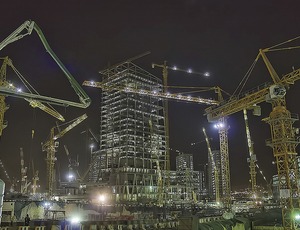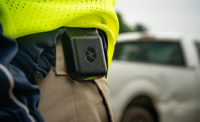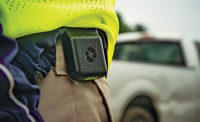
Wireless monitoring of tools and equipment has been a reality for over a decade. Adapted from the manufacturing world, sensor technology—such as RFID tags—keep an eye on the jobsite, from hand tools to tower cranes.
"Last year, we introduced PROTOid, a line of sockets and wrenches with embedded RFID tags in the tool itself," says Susan Hebrank, marketing services coordinator for CribMaster, which offers fully automated, mobile tool cribs. Stanley Black & Decker, which owns CribMaster, acquired Aeroscout, a maker of real-time locating systems, in 2012. The firm is looking to bring its active wireless location technology to tools, says Hebrank.
RFID and sensor technology can work for the biggest equipment on the site, too. "We started out as a safety company, working on anti-collision," says Dr. Serevin Kezeu, CEO, SK Solutions. The company's crane sensors have been used on major projects across the Middle East and Europe. While the firm's SK Navigator began as anti-collision software for tower and crawler cranes, it has expanded into an asset-management and security package.
Today, the system's Honeywell sensors can detect and report 3D movement, and hundreds of sensors on a jobsite can work in concert through a Cisco wireless mesh network for a full view of the site in real time. "It's not just fleet management. We can track vehicles, equipment, assets, the skills of a person," says Kezeu.
Cranes and other equipment can be managed and shut down remotely. Vehicles can be set to operate only if a user has an approved RFID tag and soon will be linked to a database of workers' skill profiles.
"We need to digitize everything on a construction site—put sensors on everything, embedded cameras, GPS," says Kezeu. "Then, you take the data into software and have full asset management, safety and project management. We have to consider jobsites like manufacturing."




Post a comment to this article
Report Abusive Comment